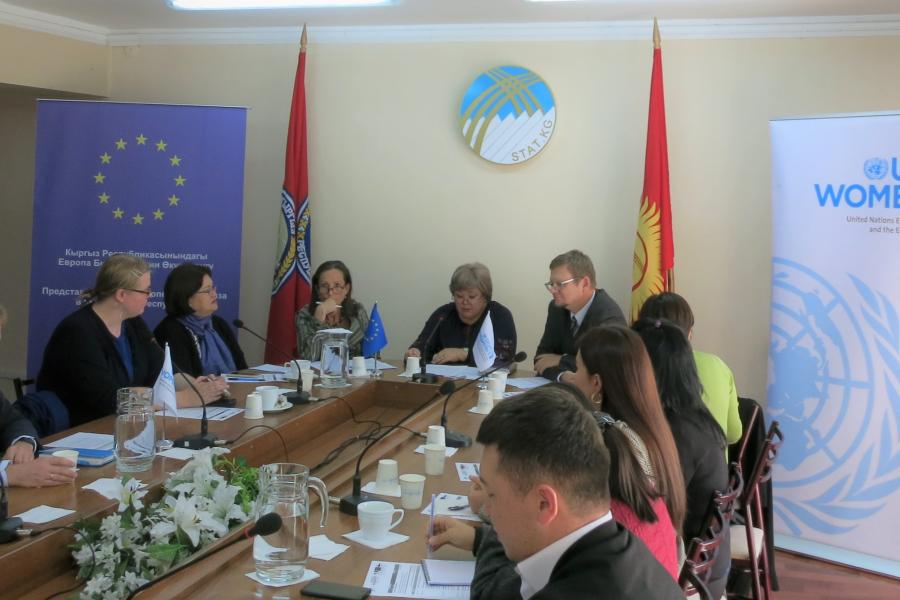Early childhood education leads to more, better, and higher paid jobs
09 October 2018
- On 10 October 2018 the European Union, UN Women and the National Statistics Committee of the Kyrgyz Republic launched a new country study on assessing costs for expanding early childhood education and care services and its effects on tax revenues, employment and gender equality in Kyrgyzstan.

According to the Ministry of Education and Science of the Kyrgyz Republic, in 2018 the coverage of early childhood education in Kyrgyzstan is 24% (compared with 16% in 2012). Currently, almost 187,000 children attend 1,390 kindergartens, of which 1,248 are public and 142 are private. A higher birth rate has led to the increase in the number of children who need early childhood education and pre-school education. So, if in 2012 there were 625 961 children between age 2 and 6, in 2017 there were already 768 299 children.
The study will be conducted from October to December 2018 under the European Union's global programme on establishing sustainable and inclusive social protection systems, and in partnership with the Organization for Economic Co-operation and Development (OECD) and the National Institute for Health and Welfare of Finland. Similar studies were successfully piloted in South Africa, Uruguay and Turkey in 2017.
Elmira Alymkulova, the Head of National Statistics Committee Apparatus, said: “It should be noted that the National Statistics Committee plays an important role in the implementation of state policy in the field of statistics and is the national coordinating body for monitoring the progress towards achieving Sustainable Development Goals.”
“Investing in early childhood development is seen as the most cost-effective strategy for promoting economic growth. Through economic modeling, this study will calculate three possible scenarios for expanding early childhood and care services with demonstrating how this expansion will affect the economic growth of the Kyrgyz Republic,” noted Charlotte Adriaen, the Head of the Cooperation Section of the European Union Delegation to the Kyrgyz Republic.
Gerald Gunther, UN Women Representative in Kyrgyzstan added: “Investment in universal, affordable and high-quality early childhood education and care services will accelerate progress on the entire 2030 Agenda for Sustainable Development. Investment in children increases the rate of women participation in the labour force which has been lagging in recent years. Early childhood education leads to better quality and higher paid jobs in Kyrgyzstan, providing for alternatives to poverty driven labour migration.”




